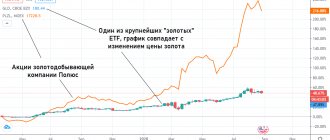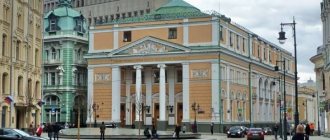Financial analysts on the probability of default
Many experts today agree that a default will not occur in 2020. There are no serious preconditions for this, and the situation is developing in such a way that the collapse of the Russian currency is logically impossible. At the moment, Russia has a strong financial market that is resistant to serious shocks and crises.
On a note! Dollar exchange rate for September 2020
Many people remember the default of 1998, when the Russian Federation was largely dependent on foreign capital - then the state was unable to cover its obligations, and the ruble collapsed sharply. This situation has nothing in common with the current state of affairs. A slow and steady decline in the value of the ruble cannot be called a good and safe trend, but it will not lead to default.
To understand that a default in 2020 in Russia is unlikely and there will be no collapse of the domestic currency, you can analyze the current state of affairs, the latest true news from the economic sector and analyze the very concept of default.
Default itself means the inability of the state to pay debts and obligations, both external and internal. The country becomes bankrupt. There is a sharp fall in the state currency and its depreciation. The reasons for default may be:
- Large budget deficit of the country. There are not enough funds to fulfill all debt obligations (external and internal).
- Depreciation of the local currency due to increasing emissions.
- Decrease in production.
- Instability of politics and social sphere.
- Large debt burden of the state.
- Significant share of imports.
If we analyze each point, we can see that at the moment Russia is not in danger of default:
- After 1998, the country plans the budget so that it has a significant share of surplus, a certain safety cushion.
- All external borrowings of the Russian Federation are based on longer-term debt terms using instruments that allow payments and repayment periods to be extended over time.
- Domestic policy is aimed at stimulating and developing domestic production and import substitution.
- The economic policy of the state is aimed, among other things, at strengthening and strengthening the bond market. Today it can be considered one of the largest. It is important that non-residents act as holders of about 20-25% of bonds, which does not carry risks, even if they all leave.
The level of Russia's external debt is 1.5 trillion rubles. (1.5% of GDP) is very small and, according to BCS specialists, is guaranteed to save the country from default even during a long crisis.
The positive side of default
Despite the fact that experts do not exclude the possibility of default and call it an extremely negative phenomenon, it also has certain advantages, the essence of which is briefly as follows.
Having the opportunity to completely write off debts or delay their repayment, the country is freed from obligations, which allows it to devote all its efforts to economic recovery. Creditor countries know about this, and therefore, in the hope of getting at least some money, they agree to write off a significant part of the debt to the bankrupt country or exempt them from paying interest.
Why is the gradual depreciation of the ruble dangerous?
Remembering the events of August 1998, which led to the collapse of the ruble, today one might think that the situation is somewhat similar to the crisis twenty-two years ago. Therefore, for the common man, the question of a default in Russia in 2020 seems logical. The latest true news reveals the reasons for the continuation of the crisis and a possible second wave of the pandemic.
On a note! Dollar exchange rate for October 2020
Experts from the Institute of Economics, in particular, scientific director of the Russian Academy of Sciences Ruslan Grinberg, say that at the moment we should not expect a default, but a constant and prolonged depreciation of the domestic currency can negatively affect the economy and the lives of ordinary citizens even without the onset of financial insolvency.
The instability and weak position of the ruble are due to obvious reasons. This state of affairs leads to an increase in inflation, which is now controlled. Mr. Greenberg expresses his misunderstanding of the position of the leadership of the Central Bank, which does not interfere in the situation.
The Central Bank could stop the decline and strengthen the ruble with its own instruments, introducing, for example, currency restrictions and a tax on transactions with foreign monetary units. A decrease in the key rate also provokes a depreciation of the ruble. In addition, a large safety cushion in the form of government savings, which is approximately equal to $592 billion, could stabilize the situation and strengthen the domestic currency if used wisely.
But at the moment, management is in no hurry to spend reserves, perhaps because the crisis and the 1998 default provoked uncertainty and awareness of the need to accumulate reserves for a rainy day.
"Woke up in another country"
On August 18, 1998, on the front page of the Kommersant newspaper, the country’s main business publication at that time, a column was published that read: “We woke up in another country.” Journalists called for calling a spade a spade: “Yesterday the government declared itself bankrupt, and the Central Bank agreed to the devaluation of the ruble.” Further, Russia was predicted to rise in prices, commodity shortages and the development of a black currency market.
All this was about the default announced the day before. This very word - “default” - after 1998 for most Russians became synonymous with any recession. Or, as economist Dmitry Travin noted, a synonym for the word ******.
On August 17, the White House and the Central Bank issued a joint statement. Among other things, it actually reported on the unilateral revision of the terms of debt securities - government short-term bonds (GKOs) and federal loan bonds (OFZ). The bonds, which were to be repaid before December 31, 1999, were reissued into new securities. A 90-day moratorium was imposed on payments on loans received from non-residents, as well as on payments on fixed-term foreign exchange contracts.
“The crisis in global financial markets found the Russian economy at the beginning of its recovery. Since October 1997, the government and the Bank of Russia have been defending the main achievements of the economic policy of recent years - stable prices and a solid ruble, and therefore the standard of living of the people,” the statement said.
Soon all the “achievements” were crossed out. In 1998, the economy fell by 5.3%, real disposable income of the population - by 18%, an uncontrolled rise in prices began, capital outflow, and the banking system was plunged into crisis. Already on the day of the default, exchange offices in some parts of the country stopped selling currency. This was the case in St. Petersburg and Rostov. In some other regions, the dollar, which previously cost 6.20 rubles, began to be sold at 7-10 rubles. Time has shown that this is not the limit.
Chairman of the Central Bank of the Russian Federation Sergei Dubinin speaks at an extended meeting of the Government of the Russian Federation. Photo aif.ru
Two months after the default was announced, a temporary commission was created under the Federation Council, which was supposed to investigate the reasons, circumstances and consequences of the decision of August 17. It included 10 senators led by Valentina Pivnenko, now a State Duma deputy from United Russia. The commission existed until March 1999, managing to hold six meetings.
The then Chairman of the Central Bank Sergei Dubinin (resigned in September 1998, is now a member of the VTB Supervisory Board), the head of the Securities Market Commission Dmitry Vasilyev, the Director of the MICEX Alexander Zakharov and the First Deputy Minister of Finance Oleg Vyugin were invited to the meetings of the commission in the Federation Council. Prime Minister Sergei Kiriyenko was invited there, but did not come (his government was dissolved a few days after the default; Kiriyenko is now the first deputy head of the Kremlin administration), as well as Yegor Gaidar and Anatoly Chubais, who were involved as outside experts when preparing the decision on restructuring.
Based on the results of its investigation, the temporary commission issued an extremely harsh conclusion, calling the decision of August 17 “a grave crime against society and the state.” The actions of officials and management of the Bank of Russia, the conclusion said, led to a loss of investor confidence, a reduction in federal and regional budget revenues, a deterioration in federal relations, decapitalization of the securities market and many other negative consequences.
The current state of exchange rates and the real situation of the country's economy
Due to the pandemic, the Russian economy is going through difficult times. The weakest points were:
- Small and medium business. Many domestic bankruptcies are expected and have already occurred. The services, leisure and recreation sectors suffer the most.
- The tax component of budget revenues, which have decreased significantly.
- Employment market. The number of unemployed has increased many times over.
Oil prices remain low, which does not allow us to say that the ruble will somehow strengthen and begin to grow. In the short term, the dollar and euro will continue to rise against the ruble. RBC specialists predict the following figures by the end of 2020:
- 70–72 rubles per dollar;
- up to 80–90 rubles per euro.
A critical collapse of the ruble is not expected. At the beginning of 2021, one can expect weak growth of the domestic currency with little hope.
Traders and economists say that while a default should not be expected in 2020, there is also no reason that it will not happen in 2021 or 2023. Everything will depend on the further development of the situation with the pandemic, hydrocarbon pricing and the position of the country’s leadership and the Central Bank.
Preconditions for default
Central Bank specialists, as well as financial experts, do not expect that life in the country will be able to return to normal in the coming year. Until sanctions are lifted and the political situation with neighbors stabilizes, there can be no talk of normalizing life in the country. Therefore, it is impossible to say unequivocally whether Russia will face a default.
As a result of the introduction of sanctions, most domestic banks suffered, which do not receive sufficient financial support from the state. Because of this, they are unable to continue cooperation with European financial institutions.
And finding themselves in such a situation, they have to make a decision to temporarily suspend cooperation with international structures or completely stop them.
According to experts, the solution to such a situation may be to search for new partners in the Asian market. And today there are active attempts to establish relations with Asian banking institutions.
The main consequence of a default for Russia will be a significant decrease in gold and foreign exchange reserves. And this will lead to banks providing loans on more stringent terms. After all, when the Central Bank has large reserves, it has the ability to provide more loans, and this makes it possible to soften the conditions for their issuance.
Expert opinions: forecast for the ruble exchange rate, in what currency to store savings
Many experts say that you should not be afraid of saving in rubles. Recently, there are many programs in banks and options for ruble deposits with high rates and attractive conditions. As Ruslan Grinberg, scientific director of the Institute of Economics, rightly notes, not a single effective manager or tycoon keeps money in rubles.
In any case, you will have to face a continuous rise in prices; the ruble will still continue to decline. The dollar will not lose its attractiveness for a very long time.
If we consider the dollar/euro pair, then their values are still in the same percentage ratio to each other as 5 or 10 years ago, in contrast to the dollar/ruble or euro/ruble pairs, where the domestic currency is losing its position at a rapid pace .
Summing up
- According to the leadership of the Institute of Economics and many leading financial market experts, there is no need to fear a default in 2020.
- The ruble will not stop falling in the short term.
- The gradual depreciation of the ruble has its negative consequences. Prices will rise.
- The economy will experience difficult times in 2020, and small and medium-sized businesses will continue to endure difficulties.
- Based on the current situation, it is recommended to keep savings not only in rubles, but also in foreign currency.










